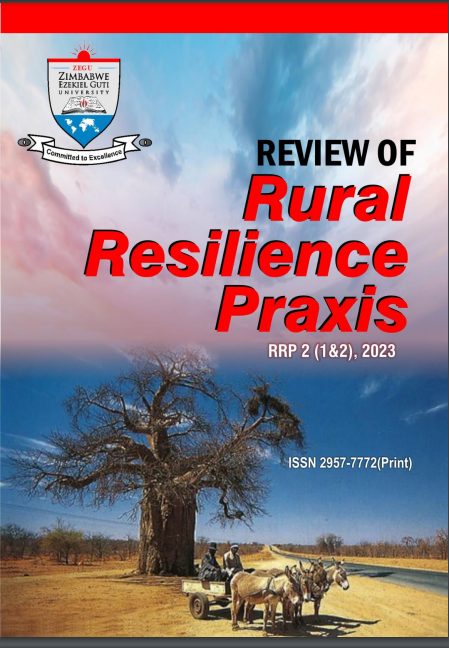Ancestry versus Presidency: Unpacking Rural Land Ownership in Zimbabwe
DOI:
https://doi.org/10.71458/sjpz7d35Keywords:
legislation, segregation, politicisation, land reform, colonialism, constitutionalityAbstract
For more than 90 years, British settlers ruled Rhodesia, now Zimbabwe. Whilst studies have been conducted to assess and document the history of rural land ownership in Zimbabwe, little has been done to assess the effectiveness in procedure and constitutionality of land reform programmes. This article explores land ownership in Zimbabwe and its relation to state control and the implications of the law. It argues that the quest for land ownership in Zimbabwe created a hostile environment that prompted a review of laws and policies by Africans towards a fair land distribution programme. This is because land in Zimbabwe has been a subject of immense politicisation. In a bid to create a balance of land ownership, the government introduced a strict land reform programme that sought to uphold and promote land ownership among ordinary citizens. Land ownership in Zimbabwe becsme a central issue for discussion during the Lancaster House Talks to end white dominance of precious land. This was worsened further by the Fast Track Land Reform Programme (FTLRP) in 2000 which changed the shape and look of land ownership. The historical 2000 FTLRP further weakened and paralysed an already deteriorating relationship between the government and white settlers who had remained in Zimbabwe after independence. The article then seeks to unravel the consequences of land reforms in Zimbabwe that caused recorded most violent moments of all time. Further, it shows that the effectiveness of the government scheme for expropriation of land without compensation was later adopted, strengthened and further consolidated in Zimbabwe‟s Constitution, which then becomes a human rights question. Accordingly, the article affirms that the laws of Zimbabwe simply put communal land in the hands of the presidency, something that has drawn wide attention as to the power vested in the presidency towards land ownership.




